IMSA
Live Data Connection
3 type of connections will be available:
- Traditional IMSA Enhanced RMon Timing connection - explain below in this document
- Al Kamel V2 Prococol - On Site - connection in pit lane on the same network as IMSA Enhanced RMon Timing
- Al Kamel V2 Protocol - On Cloud - connection via internet
Both Al Kamel V2 connections will perform the same and use the exact same protocol.
To connect live to an IMSA event, you need to setup your championship configuration depending of the protocol.
Al Kamel V2 North America
Cloud
| Protocol | Al Kamel V2 North America |
| Host | imsa.datapublisher.alkamelcloud.com |
| Port | 11001 |
On Site
| Protocol | Al Kamel V2 North America |
| Host | timing-data.aks |
| Port | 11001 |
Micro-Sectors
Micro-Sectors are available in IMSA SportsCar Championship using Alkamel v2 feed.
List of loops Per Track
On all tracks, PitIn and PitOut are also available.
You can use these loops to create additional sectors, for example:
InLap: FL;PitIn
Daytona: FL,T2,IM1,T4,T5,T6,T7,IM2,T9,TA,TB,TC,TD
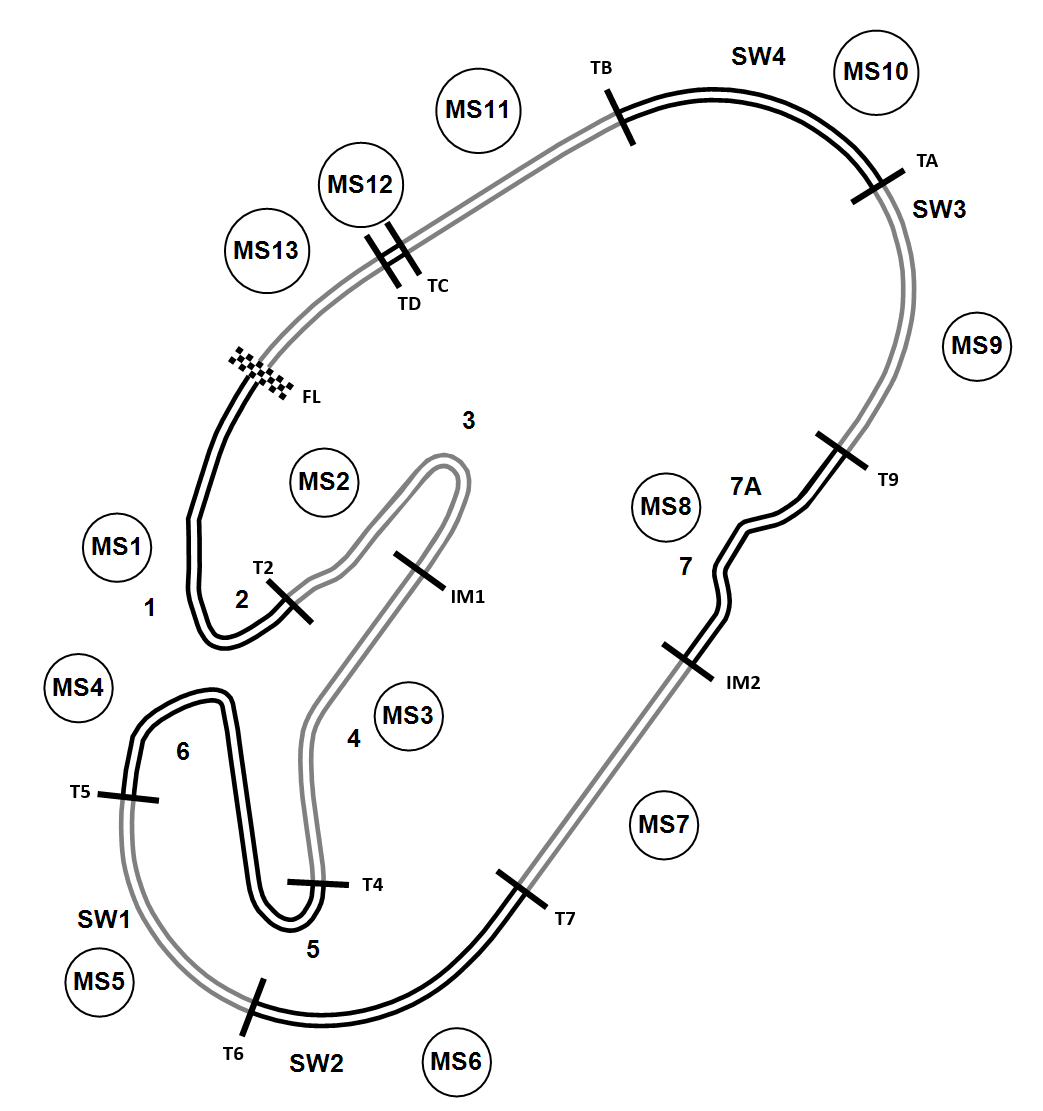
These timing loops can be used to create custom sectors, in the additional options of the championship configuration before connecting. Here is the list of micro-sectors per track for the IMSA SportsCar Championship:
| Track | Micro-sectors |
|---|---|
| Daytona | FL,T2;T2,IM1;IM1,T4;T4,T5;T5,T6;T6,T7;T7,IM2;IM2,T9;T9,TA;TA,TB;TB,TC;TC,TD;TD,FL |
You can choose the name you want but the value should always be: Loop1;Loop2
You can only define additional sectors on a computer directly connected to Alkamel V2 North America Protocol (server). Client computers connected via the server mode will receive automatically the same sectors than the server.
Starting from the Daytona tests in November 2025 and for the 2026 season, defining a speed trap is possible (only with the Alkamel V2 protocol):
To do that, define it it in the additional options with the following format for the value:
Entry Timeline;Exit Timeline;Distance in meters
For example at Daytona, it will be:
TC;TD;36.576
- If
Use Micro Sectors As Main Sectorsis set to true:- Standard sectors
S1toS9will correspond to your new main sectors soSZ1toSZ9.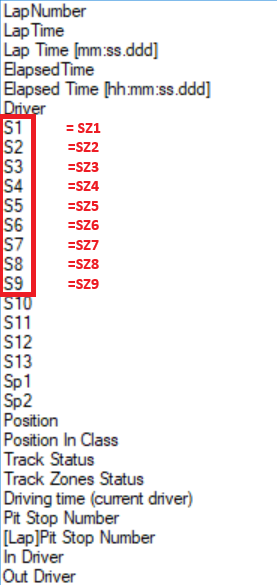
- It is required to define the Number of Non-Track Sectors in the backstage option (e.g.,
3): 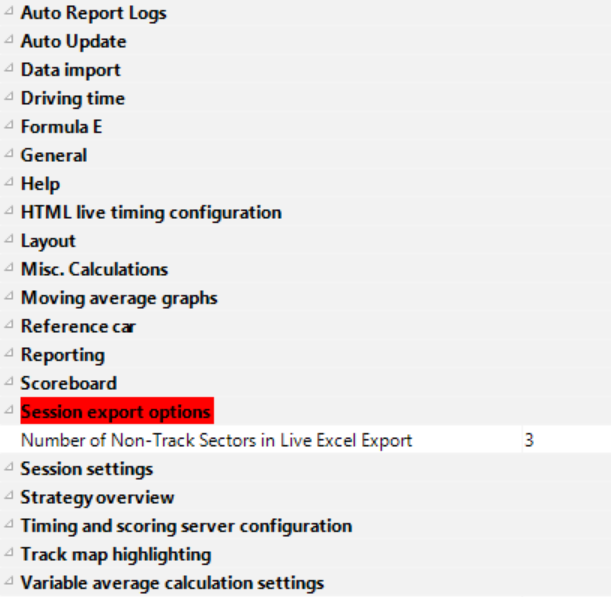
- Then,
NTS1toNTS3will correspond to the originalS1toS3. 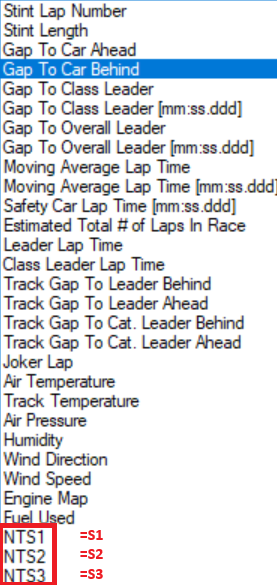
- Then,
- Standard sectors
- If
Use Micro Sectors As Main Sectorsis not set or set to false:- Standard sectors remain named
S1toS3. - All non-track sectors, including slow zones, will appear as
NTSentries (e.g.,NTS1,NTS2, ...).
- Standard sectors remain named
Championship configurations examples
Find Below some examples of championship configurations (Daytona):
- Al Kamel V2 Prococol - On Site - Daytona - Micro - connection in pit lane on the same network as IMSA Enhanced RMon Timing with micro sectors as main sectors
- Al Kamel V2 Prococol - On Site - Daytona - Standard - connection in pit lane on the same network as IMSA Enhanced RMon Timing
- Al Kamel V2 Prococol - On Cloud - Daytona - Micro - connection via internet with micro sectors as main sectors
- Al Kamel V2 Prococol - On Cloud - Daytona - Standard - connection via internet
IMSA Enhanced RMon Timing connection
| Protocol | IMSA Enhanced RMon Timing |
| Host | 192.168.74.12 |
| Port | 10030 |
Additional Option
It happens that some wrong best lap time correction message get send on the IMSA Enhanced RMon Timing protocol. This can lead to laps not being displayed when replaying/activating a session. If this is the case the option can be set to True. By default, the option is at False.
Additional Sectors
In the Additional Options, you can now create your own sectors, using the timing lines names. For example, at Daytona, timelines names are: On Track:T1,T3,T4 In Pits: P5,P1,P2

You can choose the name you want, but the value should be Entry Timeline;Exit Timeline. For example if you want to create a sector from SF Line to Pit Entry, you will need to enter T1;P5 as value:
Championship Regulations
The championship regulations should be set as follow:
| Fuel and Tires in Parallel | True |
Track Maps
The track maps for each events needs to be selected in the IMSA Folder:
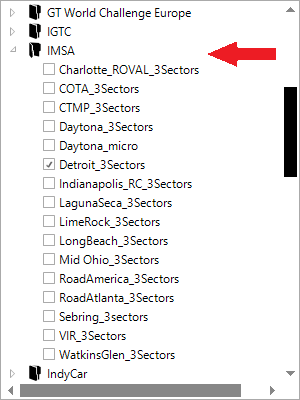
The most recent track map is the one without a year attached to it. Previous year tracks, if different would have the year added at the end. For example:
| Daytona_3Sectors | Current Track (used since 2022) |
| Daytona_micro | Track map with micro sectors |
Post Session Replays
Normally, on Tuesday at 12:00PM EST following an event, replays with all the sectors are made available at results.imsa.com/.
The replays are available in the "CSV and Replay" section:

After downloading the files and unzipping the file you should find two files:
- .txt which is the replay of the session.
- .csv which is explain below.
Post Session CSVs Data Import
2 types of CSVs can be imported in HH Timing using the Import T&S Data function.
Alkamel "Time cards"
This file can be download directly following a session on results.imsa.com/ inside a specific session. This files only contains the 3 sectors information.

This file can be imported using the Al Kamel North America file format and using the appropriate Timed or Race option.
IMSA CSVs
The IMSA CSVs replays are available in the "CSV and Replay" section normally, on Tuesday at 12:00PM EST following an event. Those files contains all sectors available on track:

This file can be imported using the IMSA Timing file format and using the appropriate Timed or Race option:
IMSA telemetry
HH Timing can now record and display IMSA telemetry data provided by IMSA GTP & GTD telemetry website: https://www.imsa.com/gtp-telemetry/.
Add the Enable Telemetry Reading parameter to the championship config from either IMSA Enhanced RMon Timing protocol (IMSA Timing) or Al Kamel V2 North America protocol to enable the recording.
Recorded from the telemetry, the following columns will be available on the main scoreboard:
- Energy Rem
- Energy % consumed Last Lap
- Energy Refill Time

Those metrics can be plotted using lap numeric tag graphs.
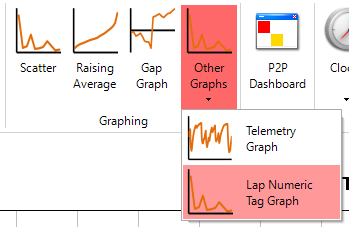
The Y-Axis can be selected using the Configure Graph option:
Here is an example for the energy remaining:
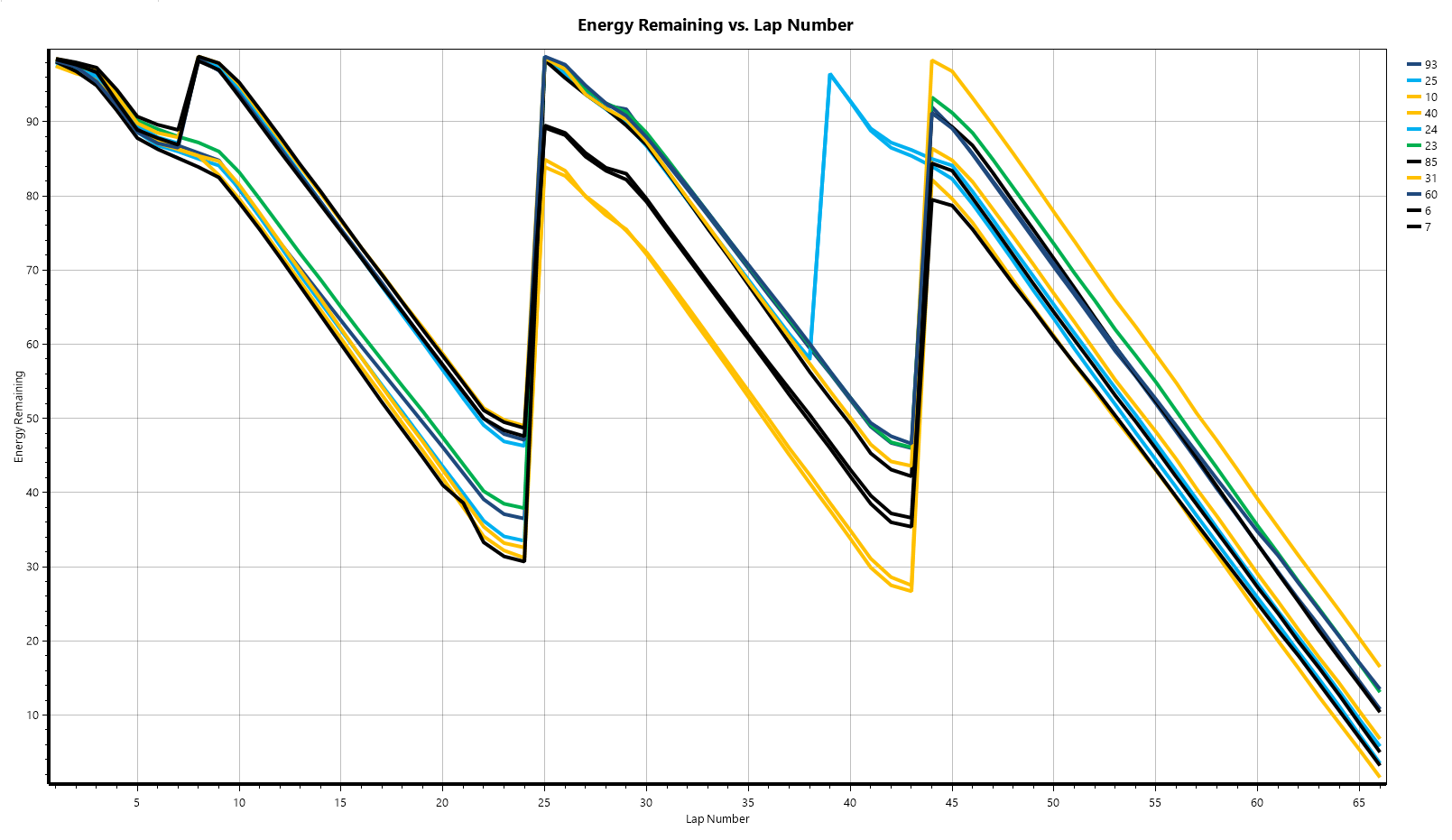
The Energy Refill Time can also be used directly as an input for the custom ghost by enabling the Incl GTP Refill Time option in the custom ghosts settings.
Although currently named GTP, this option can also be used for GTD.
Example on full track map:
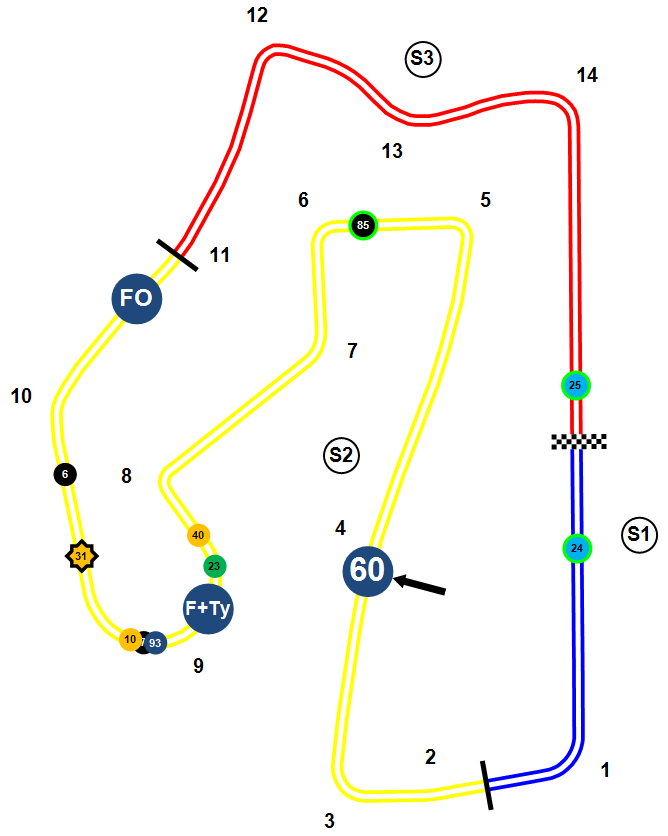
The intention of IMSA is to provide an immersive experience and insight of the race strategy for fans, TV and radio commentators. Therefore the data is unofficial and may not reflect the reality. The website provides 1 Hz filtered and rounded data.